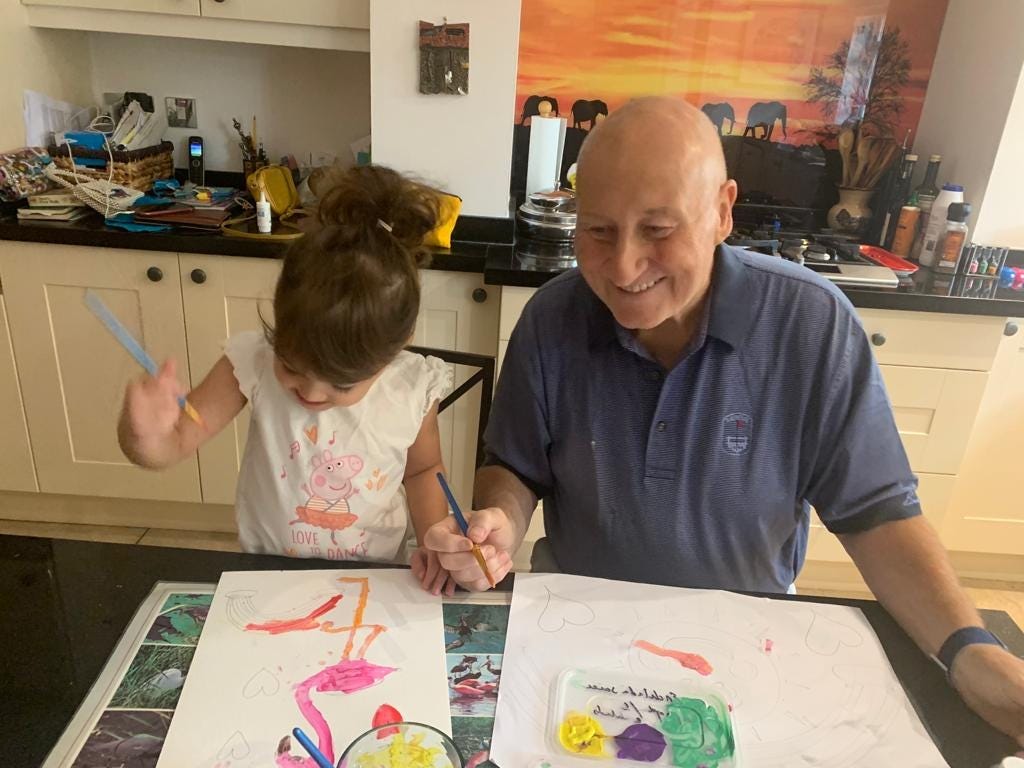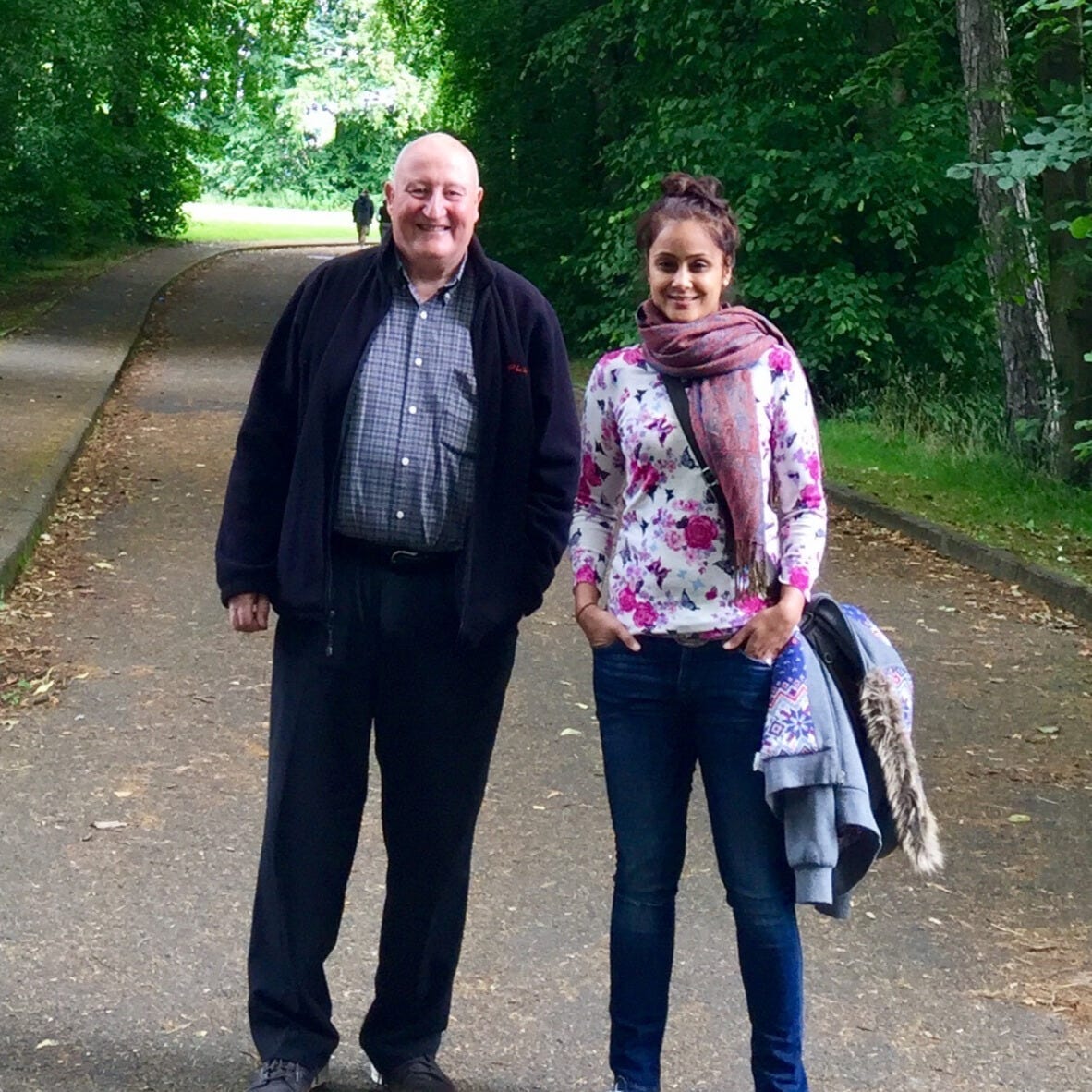It’s been nearly 3 years since we lost my father-in-law, Bobby, to cancer.
Breast cancer.
In 2016, when we were told of his diagnosis, we were shocked to hear it. Horrified because the C-word had entered our family’s life. And stunned that it was cancer of the breast.
“How can he have breast cancer?” I remember thinking. It must be a mistake.
Turns out, men can get breast cancer too. While men do not have breasts like women, they do have breast tissue.
Globally, less than 1% of all breast cancers occur in men. The lifetime risk of being diagnosed with breast cancer for men is about 1 in 1,000; for women it’s 1 in 8. Although not as common as in women, breast cancer in men has a 25% higher mortality rate compared to women with breast cancer.
No one talks about it because it’s so rare. It is often treated like breast cancer in women, but research shows that there are some differences. While research into female breast cancer continues at a steady rate, male breast cancer research remains significantly underfunded. More research is needed for effective treatment.
There are a few types of breast cancers that men can get. My father-in-law had the HER2 positive breast cancer where the cancer cells have too much of the growth-promoting protein known as HER2 on their surface. These cancers tend to grow and spread more aggressively.

Unfortunately, men are often diagnosed with breast cancer at a more advanced stage. Since men may not be aware that they can develop breast cancer, any changes in their breast tissue may go unnoticed. As a result, they may not even recognise the need to consult their doctor regarding a lump, pain, swelling, or any other symptoms.
Nor do men undergo routine screening (mammograms) like women do, making it difficult to detect breast cancer early when it is more treatable. This trend is likely to be the primary factor contributing to the higher mortality rate for male breast cancer compared to female breast cancer.
My father-in-law found a lump in the shower and went to the doctor for a check-up. It could be that he knew men could get breast cancer, or knew lumps should be assessed, that made him get a check-up. His cancer was detected relatively early on.
Research also shows that it is not uncommon for men who have breast cancer to feel isolated and stigmatised because they have a ‘woman’s disease’. This stigma needs to go.
Bobby never talked about his cancer to anyone apart from us, his immediate family; even then, it was seldom. I don’t think in his case it was due to any stigma, but rather not wanting to let his life be affected by a cancer diagnosis.
Over the 6 years that he lived with the disease, no one else knew he had it, despite going through 12 rounds of chemotherapy, radiotherapy, lymph node removal surgery, and a mastectomy.
Perhaps talking about it didn’t allow him to continue living his life in the way he wanted to, so he chose to deal with it internally. I cannot imagine what he must have been going through.
In December 2021, he was given the all clear before he flew to spend Christmas with us in Dubai. He was due for one final round of chemotherapy that we were told could wait till after the festive season.
Whilst in Dubai, he developed unsuspicious symptoms — fatigue, back pain, headache, no appetite. He had been through a lot over the last 6 years, it could just have been accumulated symptoms surfacing.
After 4 weeks with us, he flew back to Glasgow for a check-up before his final round of chemotherapy, and they found that the cancer had spread all over. We were told he did not have much time left, a few weeks at most.
He died within 5 days of seeing the doctor.
— -
October is breast cancer awareness month. I recently participated in a documentary to raise awareness about breast cancer and highlight the strength, resilience, and stories of those affected by it.
I talk about my father-in-law and male breast cancer.
When discussing breast cancer, I urge you to talk about male breast cancer too.
Talk to your father, your brother, your husband, your son. Tell your friends. Tell everyone.
Talking about it raises awareness. Awareness assists early detection, which could save a life. More awareness can also support more funding for male cancer research.
Let’s talk about it, it’s the least we can do.




